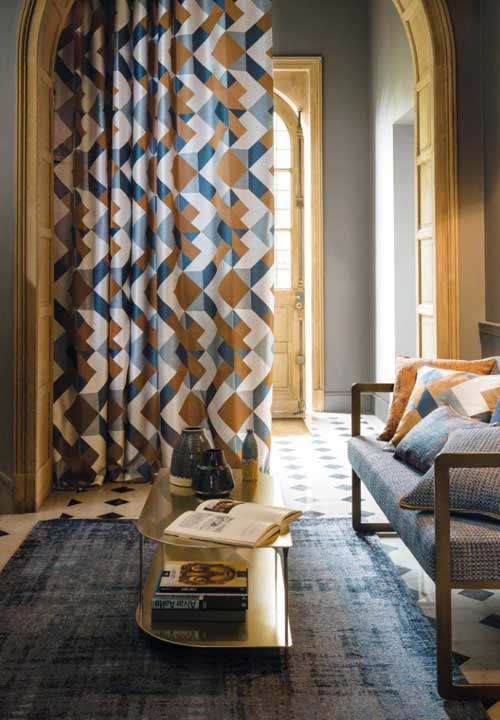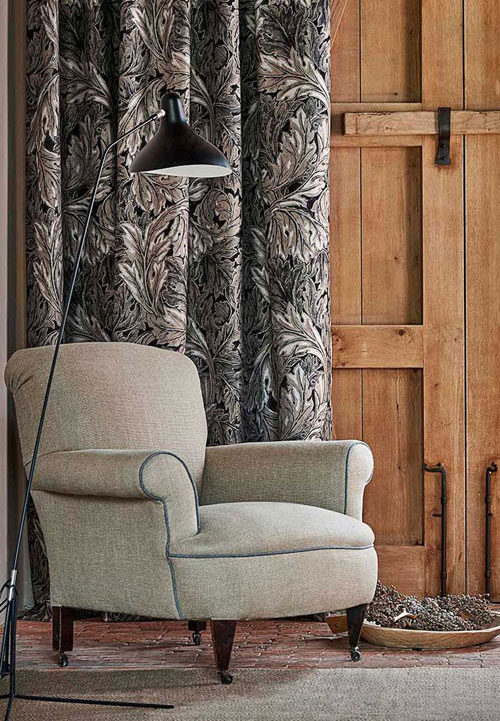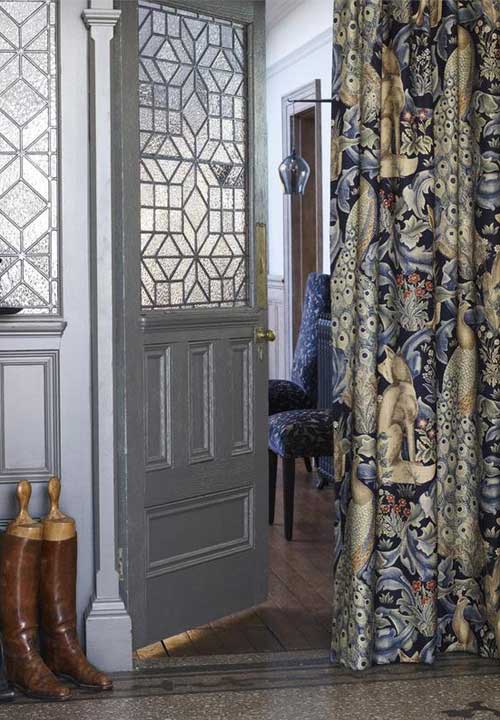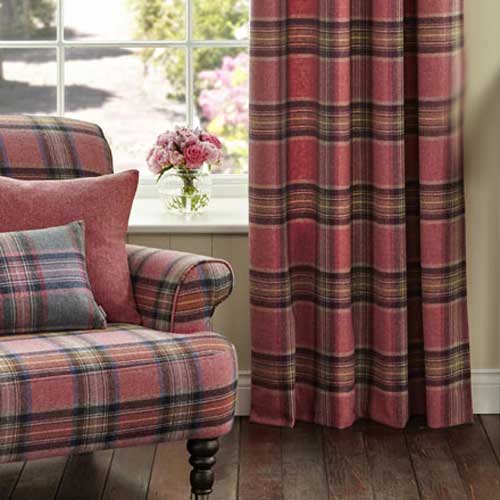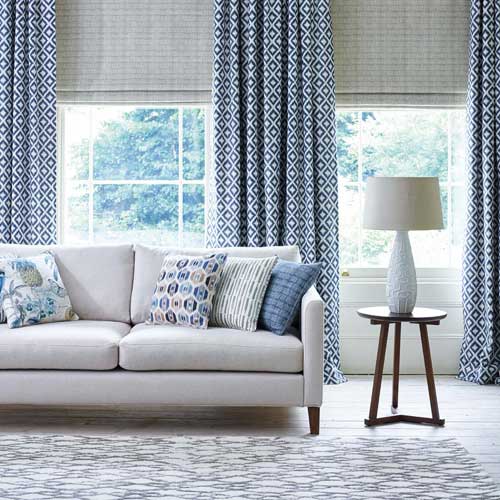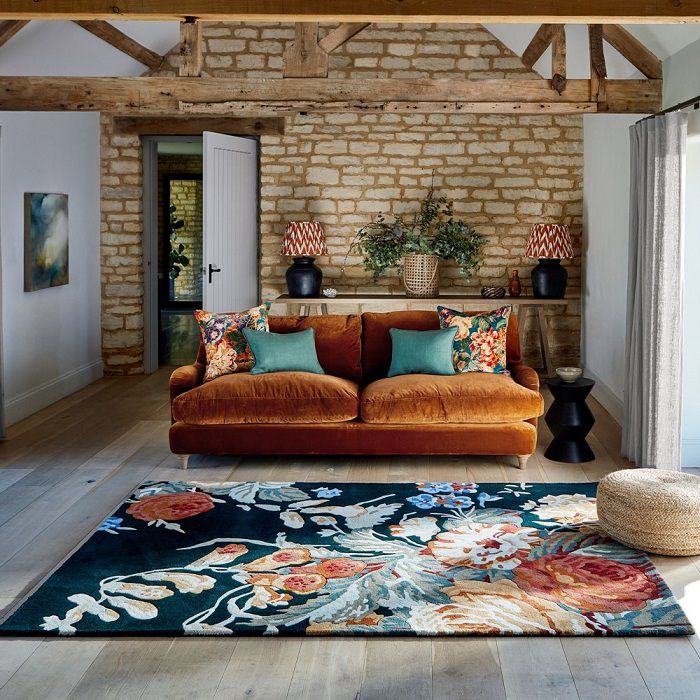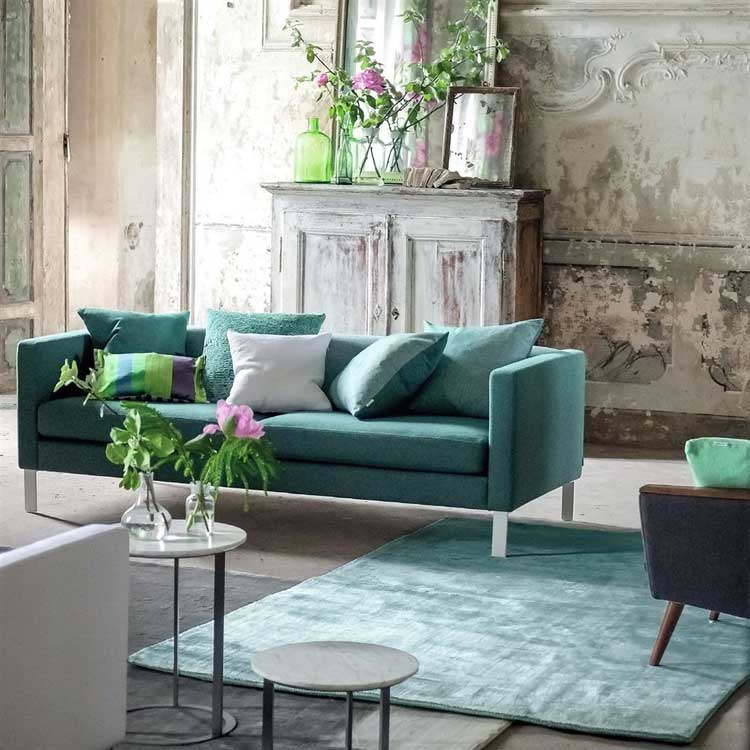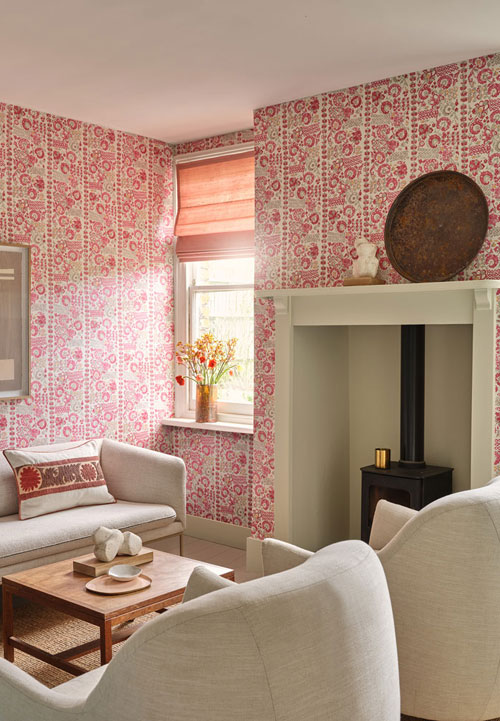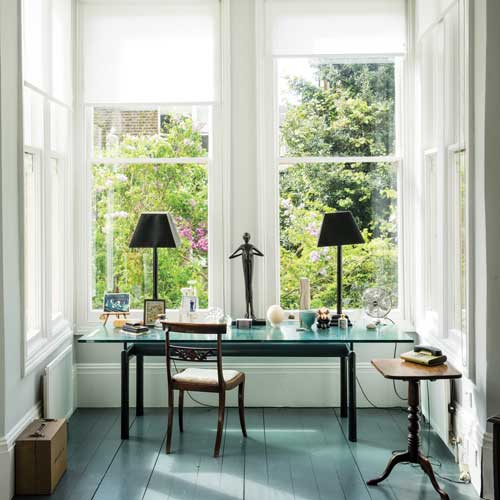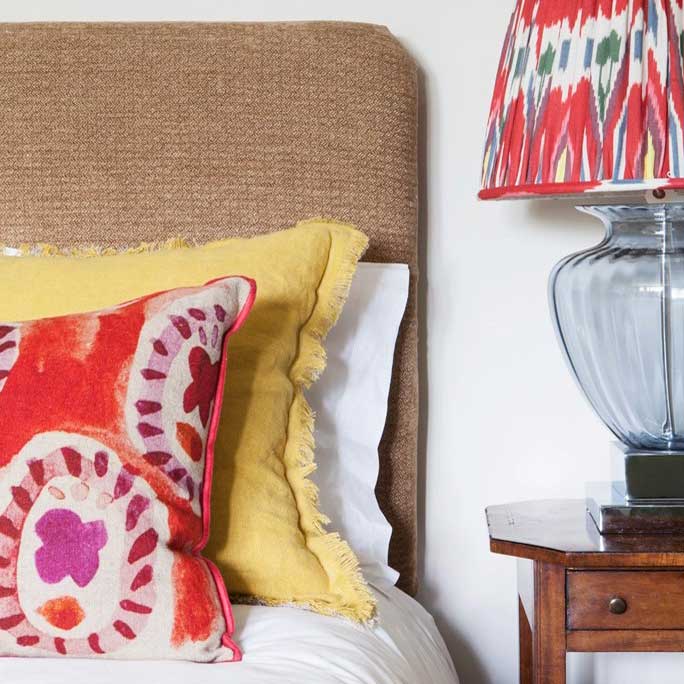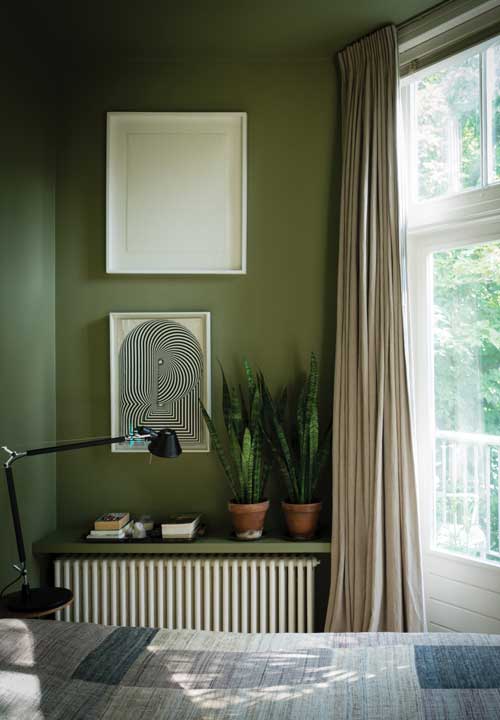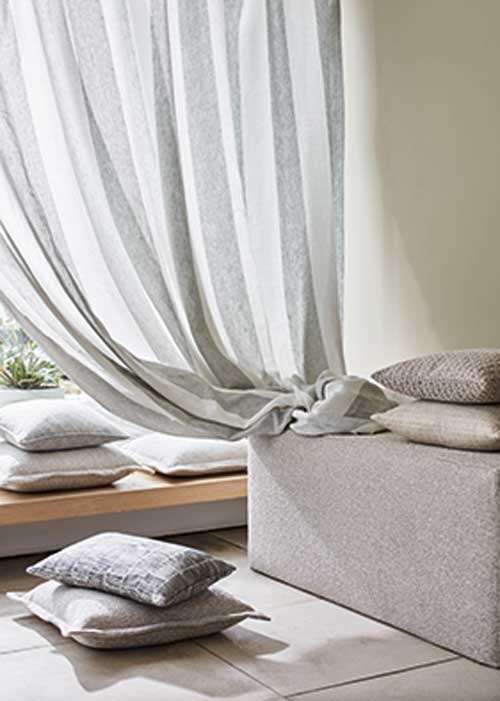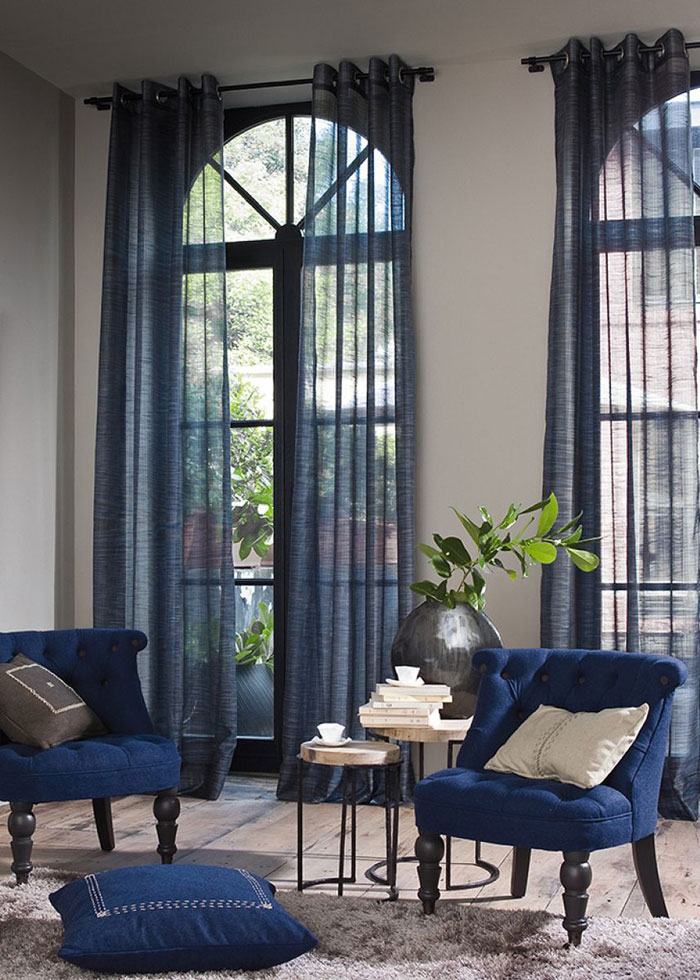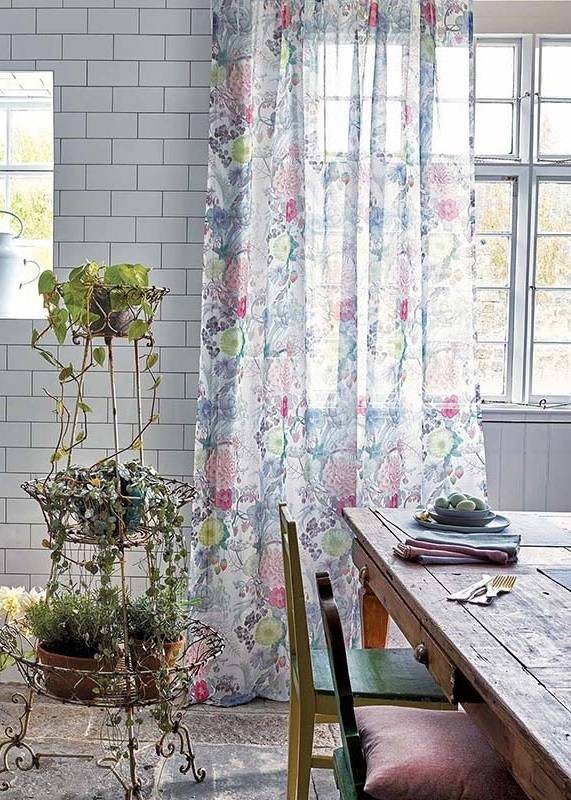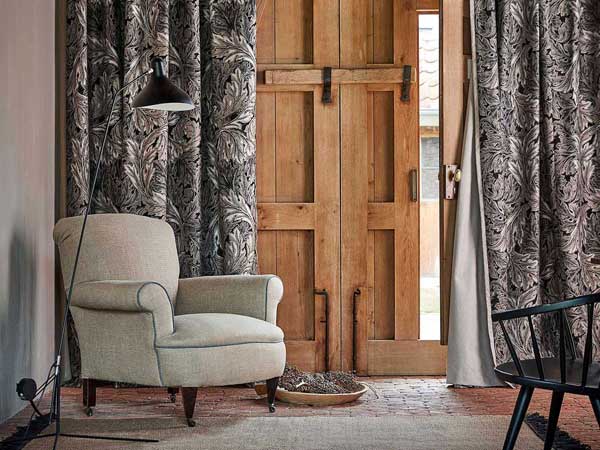Reducing heat loss in your home is one of the best ways to make it a more comfortable and pleasant place to live. These handy tips will help you to both maximise the heat that you already have as well as tackle the problem areas where it is most commonly lost. A few changes here and there will help to keep your home warmer and could allow you to run your heating at a lower temperature, potentially saving money on your energy bills. So, follow our simple home decor tricks to make your home more heat efficient this season...
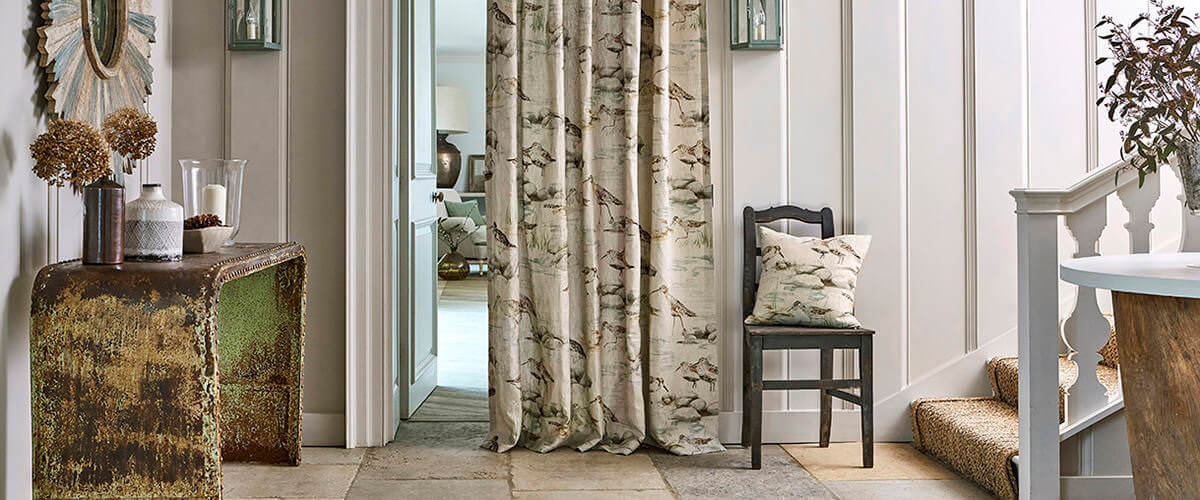

1. Add a Door Curtain
With the weather outside influencing the temperature of our homes by up to 20%, our external doors are essential to keeping the heat in and the cold out. Brand new, well insulated front doors are often costly to install, so a good alternative is to hang a curtain in front of your door. This acts as a barrier to incoming drafts as well as offering an extra layer of insulation, especially if your front door is glazed. Other areas where hot air commonly escapes through are the letterbox and through gaps under the door. To minimise this, make sure that your curtain is measured to completely cover the door and the walls to either side. This will block off any potential air streams from entering the house and also offer you privacy as an added bonus.
2. Insulate Your Windows with Curtains and Blinds
As most homes feature them as part of their interior design, window dressings are a key player in making your home feel warm. With between 10% - 25% of thermal energy heading straight out the window, it is essential that your curtains and blinds are maximised to their full potential. Natural insulators like wools are your most energy efficient option, however other heavyweight materials such as velvets, jaquards and tightly woven fabrics are all great choices.
Layering is also key to retaining heat within the home and adding multiple layers to your drapes and blinds helps to trap warm air in. Interlining is a great option for keeping your room at a comfortable temperature throughout the seasons as it acts as a barrier to heat, light and noise. It also adds fullness to your drapery which creates a more luxurious look. Another option is to feature both a curtain and a blind in your windows to create multiple layers. Bespoke curtains and blinds will be made to perfectly fit your home and maximising their energy efficiency.
3. Add Rugs To Your Floors
Although wonderful to look at, exposed floorboards can account for up to 10% of heat loss if not insulated properly according to the National Energy Foundation. Large gaps between boards let drafts in and floors will feel cold on your feet, especially on the ground floor. Rugs are a superb way to reduce heat loss in your home. Not only do they provide a barrier between your feet and the floors, they also feel comfortable to walk on and are stylish additions to your interiors.
Wool is one of the top insulators and is also very durable so a worthwhile investment for years to come. Other alternatives include cotton, acrylic and nylon rugs are all great alternatives to provide good insulation to your floors. The key things to look out for is the stitch count, also called a needle count. This refers to how many loops or threads of yarn have been used in the weaving and makes a real difference to the warmth of the rug. A higher stitch count means the rug is denser and will offer better insulation.
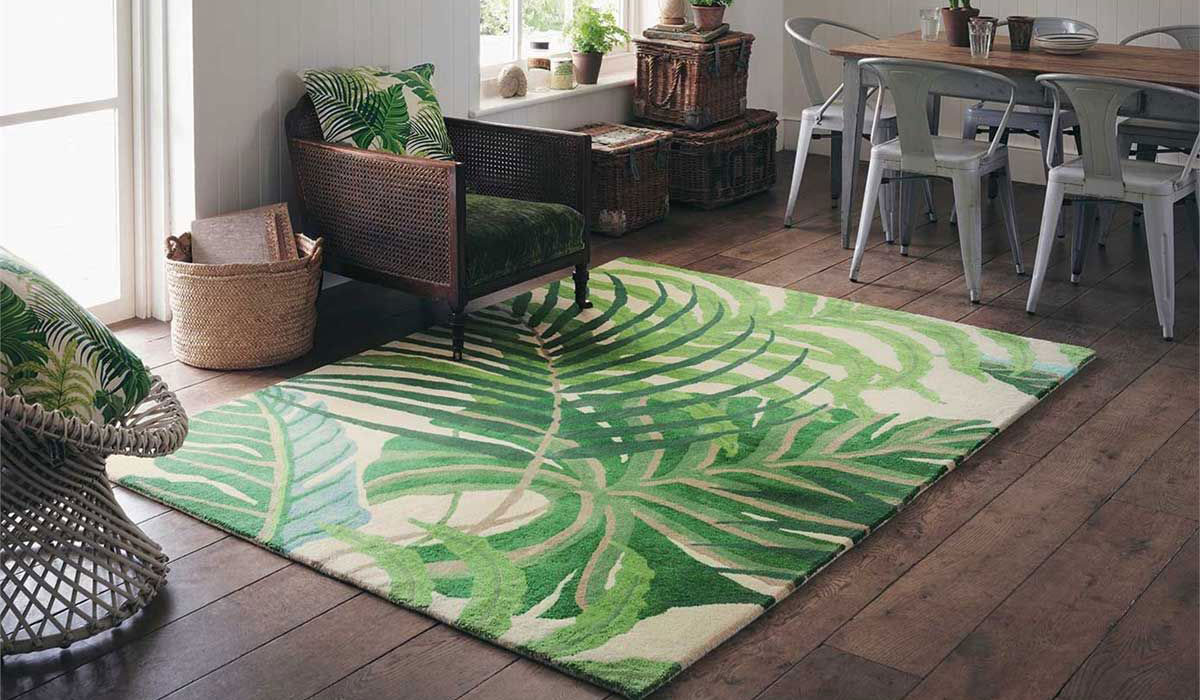

4. Position Your Furniture Wisely
When designing your interiors or restyling a room, it is important to think about how your furniture is going to look and function within your home. External walls are the last thing to heat up in a house as their proximity to the outside means that they hold the cold for longest. Try to keep furniture away from walls, even just leaving a slight gap will allow for warmer air to travel in-between. If your bed is positioned against an external wall, a fabric headboard is a great way to create a barrier between you and the cold. By adding an extra layer to absorb any cool air, you will be protected from feeling the chill and will be treated to a great (and warm) night’s sleep.
Positioning furniture around heat sources such as sunny windows or cosy fireplaces is an obvious arrangement, however remember to also leave room in front of radiators to maximise their potential. A shelf positioned above is a great way to conserve its heat and can be a great way to reduce it's focus within a room. Also, with so many styles now available, radiators can create a great design feature in a room when left natural or painted to match the walls.
5. Let The Sunshine In
Our final tip is a freebee that should not be underestimated as to how much a difference it can make to the warmth of your home. Sunlight provides plenty of natural heat on a cold day. Irrespective of the temperature outside, if the sun is shining through your windows, your house will absorb that heat and will feel warmer.
Window dressings that let the light in are a great addition to your home as they offer the flexibility to allow sunrays to permeate through whilst maintaining privacy. Fabrics like sheers and voiles can be a beautiful addition to windows and when paired with fuller curtains that can be pulled once the sun sets in the sky, you are able to take advantage of both the benefits that these window dressings offer.
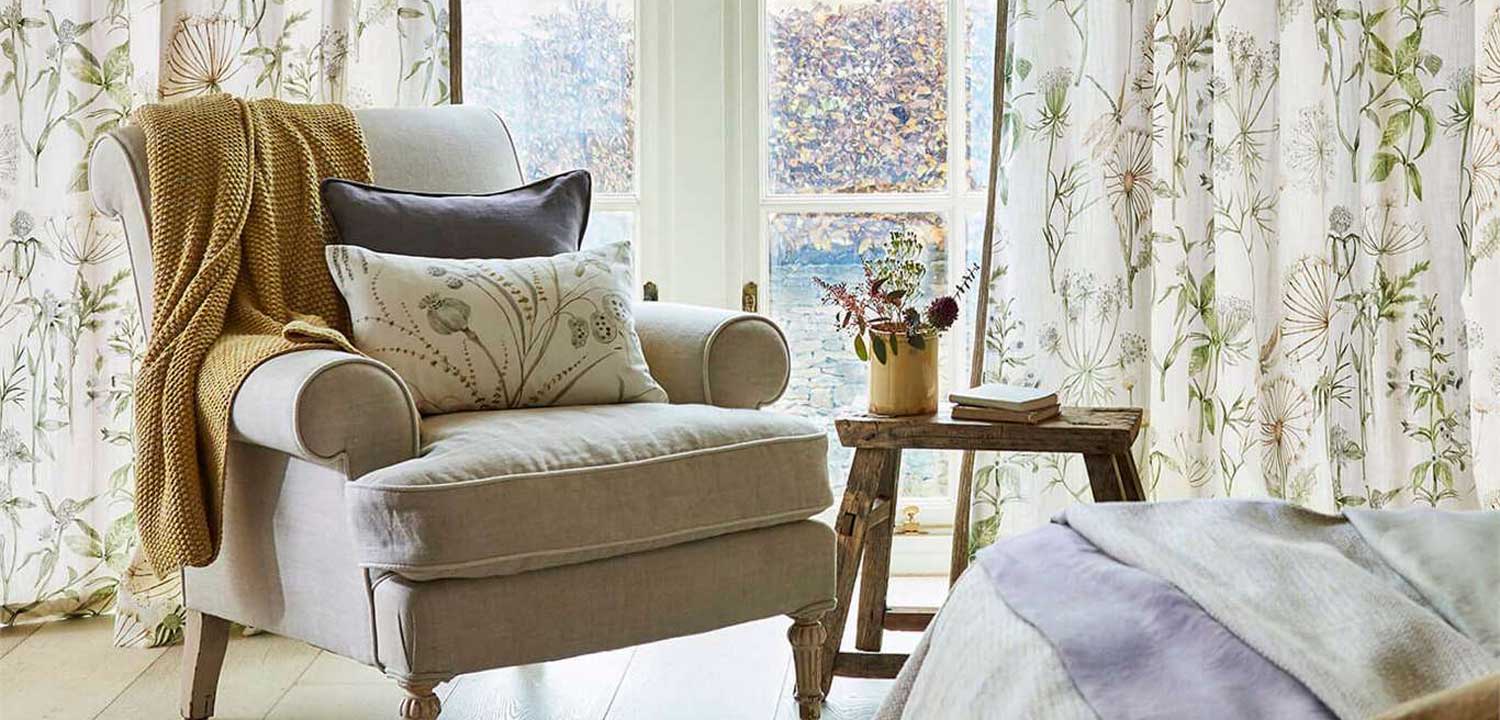

You May Also Enjoy Reading...
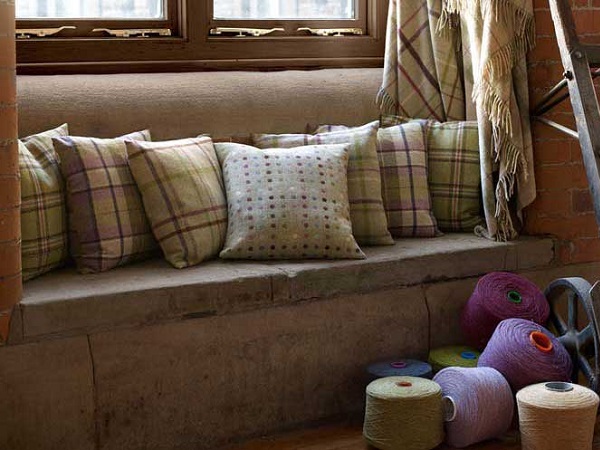

Feel The Benefits of Wool
With so many benefits to using this natural fabric in your designs, we explore its amazing properties as well as feature lots of inspirational images to show the many ways you can use this remarkable material in your own home.
References from energyeducation.ca, energysavingtrust.org, howstuffworks.com, nef1.org
- paypal
- visa
- mastercard
- amex

